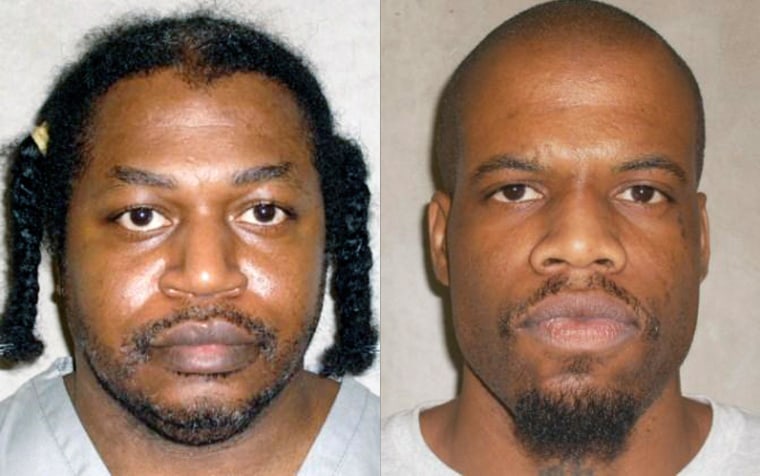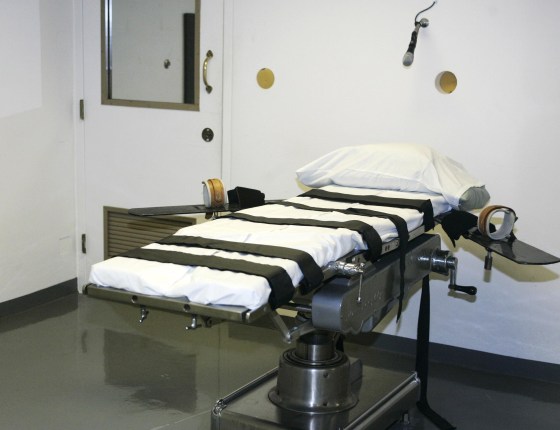In the latest battle over the secrecy shrouding execution drugs, an Oklahoma judge declared a state law that keeps the source of lethal injections under wraps is unconstitutional.
Oklahoma County District Judge Patricia Parrish ruled that the law — which was challenged by two death-row inmates scheduled for execution next month — violates due process rights.
The state attorney general's office said it would appeal.
“The entire reason for Oklahoma’s confidentiality statute is to protect those who provide lethal injection drugs to the state from threats, coercion and intimidation," it said in a statement.
"We are disappointed in the judge's ruling."
Federal public defender Madeline Cohen said she hoped the ruling meant the executions of convicted murderers Clayton Lockett and Charles Warner will be put off indefinitely.
"We hope that no execution will go forward until the state reveals full information about the source of its execution drugs, particularly in light of the new, controversial protocol it unveiled last week," she said.
Their executions have already been postponed once, after the state revealed it was unable to obtain the drugs specified in its protocol: pentobarbital and vecuronium.
Earlier this week, Oklahoma unveiled a retooled protocol that would allow it to choose from any of five lethal injection methods, including several that would require the involvement of controversial compounding pharmacies.
A number of states have turned to the specialty pharmacies to make their injections because the drug manufacturers refuse to sell them to prisons for executions — and officials are anxious to protect their identity to insulate them from lawsuits and protests.
The secrecy has been challenged by a series of inmates, including Jeffrey Ferguson, who was put to death by Missouri early Wednesday for kidnapping, raping and killing a 17-year-old.
The U.S. Supreme Court rejected a stay of execution for Ferguson, but four justices of the nine justices dissented.
Meanwhile, a similar fight is brewing in Texas, where lawyers for child killer Tommy Lee Sells and rapist-murderer Ramiro Hernandez Llanas will be in court Thursday to ask that the state be forced to disclose where it obtained drugs for their scheduled executions.
After its existing stockpile expired, the state recently announced it had obtained pentobarbital from a new source but would not identify it, even though the state's attorney general had ruled in the past that the information must be public.

